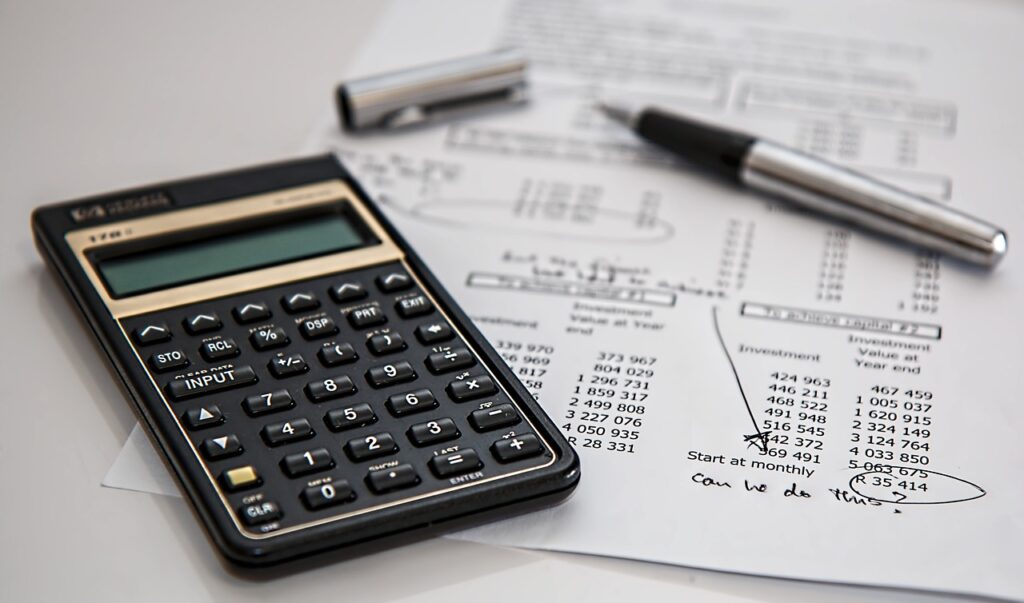Managing personal finances in the current fast-paced world is not a light task. It involves monitoring spending, creating budget plans, saving for the future, and making wise investments, among other financial activities. However, with developments in technology, taking charge of your financial future has been made easier through finance apps. These are applications that come with various features, such as effective budgeting so that you can save more and achieve your financial goals within the shortest time possible. In this guide, we will look at some examples of finance apps that will help you budget and save, thus giving you power over your own financial destiny.
Expense Tracking Apps
For instance, when it comes to managing money, budgeting becomes an essential part of handling one’s personal finances because it helps one cut back on expenditures as well as monitor how much they spend. Expense tracking applications offer a range of benefits, including real-time expense tracking, categorization of expenses, customizable spending reports, etc. Here are some popular expense tracking apps:
- Mint is an all-around personal finance app that aids in keeping track of daily expenses, making budgets, and reminding people about bill payment dates. Apart from transaction categorization, essence alerts, and credit score checks help users keep on top of their finances until they attain their monetary objectives.
- PocketGuard optimizes your budget plan based on your spending habits by analyzing them automatically while keeping track of what you spend. Bill-tracking ability, subscription reminders, and savings targets are some additional features found in PocketGuard that make it easy to track costs in the pursuit of mental tranquility.
- Wally is another money management tool worth mentioning here due to its simplicity as well as intuitiveness: users can enter information regarding expenditures made manually or scan receipts just before setting up limits within various categories for disbursements made every month. Wally assists with the organization since it incorporates different functions like customizing spending groups, currency conversion units, and data export facilities.
Budgeting Apps
This also means coming up with a way of spending money that does not see you spend beyond your means by focusing only on the most important projects. Some of the features found in budgeting apps include the creation of budgets, setting financial targets, and tracking different kinds of incomes and expenses. Below are some of the of the leading budgeting apps:
- You Need a Budget (YNAB) is one of the commonly used budgeting apps that follows the zero-based budgeting technique, where every dollar should have a purpose or role to perform. Goal tracking, debt payoff tools, and live workshops are examples of YNAB’s features that put you in charge of your finances until you achieve monetary goals.
- GoodBudget is an example of an application based on an envelope system with virtual envelopes that allows users to allocate funds for various types of expenditure. This includes expense tracking across multiple devices with customizable budget reports. GoodBudget has proved helpful in maintaining effective budgets, thus allowing individuals to save their money wisely.
- EveryDollar is owned by personal finance guru Dave Ramsey, and it is a tool that lets you smoothly create and monitor your monthly financial plan. Among numerous other aspects, this app will help you have customized categories for planning purposes, track all transactions, and show how far into reaching targets set up under any given plan you are.
Savings Apps
Saving money also forms part of financial management because, through savings, one can be able to cater for emergencies with ease, plan for better future prospects, and ensure a constant source of income flow, hence becoming financially secure. Key attributes that make savings apps stand out from others include automatic savings transfers, goal setting, and rewards, among other things, which encourage saving habits. Here are some of the of the top savings apps:
- Digit is the name of a savings app that serves to assess your spending behavior and then transfers fractions of your cash from your checking account into a Digit savings account automatically. With simple things such as goal setting, overdraft protection, and no minimum balance requirements, Digit enables you to save money with ease.
- Qapital can be described as a savings app in which you can set goals for saving and automate the process with rules and triggers that are customizable. It has features like round-up savings, goal-based savings challenges, spending insights, etc. that help you make progress on your financial goals.
- On the other hand, Acorns is an investment micro-app that rounds up every purchase made in everyday life to the nearest dollar and uses those funds to invest in a diversified portfolio. Through automatic rebalancing, recurring investments, and retirement options, among others, you are able to grow your savings while building wealth over time.
Applications for Investment
This is important because investing is one of the most effective ways for individuals to improve their wealth and achieve financial freedom. Similarly, these types of apps offer commission-free trading services, educational resources about investing, and portfolio management services. Some popular investment apps are:
- Robinhood: Robinhood is an investing app that does not charge commissions when buying or selling stocks, ETFs, options, or cryptocurrencies. Investors have been attracted by several features, like fractional shares, real-time market data, and dividend reinvestment, that allow even small investors to buy pieces of shares rather than whole ones.
- Wealthfront: Wealthfront operates as a robo-advisor, providing automated portfolio management and financial planning depending on risk appetite and long-term objectives. With tools like tax-loss harvesting—a strategy aimed at minimizing gains tax obligations—automatic rebalancing (which keeps portfolios aligned with desired asset allocations), low fees (0% transaction costs), etc., Wealthfront assists in establishing well-diversified investment portfolios for its customers.
- Betterment: This is another robo-advisor that offers personalized investment advice as well as portfolio management services to help you meet your financial goals. By utilizing goal-based investing, tax-efficient strategies, and socially responsible investing options, Betterment provides an easy way for anyone to invest without any hassle.
Conclusion and Recap
Therefore, finance apps are instrumental in individuals managing money correctly, budgeting wisely, and achieving financial objectives. From expense tracking and budgeting to savings and investing, these applications provide a range of tools for consumers to take charge of their money and thus build their future financial security. To sum up briefly, the main topics discussed are:
- Expense Tracking Apps: These include Mint, PocketGuard, and Wally, which allow users to track their spending habits and classify expenses.
- Budgeting Apps: Three examples of these are YNAB, GoodBudget, and EveryDollar, which give people the means to create budgets as well as set goals while monitoring income and expenses so that they can stay on track with their finances.
- Savings Apps: The automated savings features offered by Digit, Qapital, and Acorns enable users to save towards emergency funds or other needs such as education, mortgage down payment, retirement, etc., respectively.
- Investment Apps: In addition, Robinhood enables free trading with fractional share features, while Wealthfront uses algorithms for managing portfolios based on a person’s risk tolerance, and Betterment suggests personalized investing advice through artificial intelligence technology so that people can enjoy the process of investing rather than being terrified by it.
These finance apps help individuals take control over their financial lives, thereby empowering them to make informed decisions concerning monetary issues and leading toward the realization of long-term aspirations. Thus, whether you want relief from debt at some point, secure a future home purchase deposit, or retire comfortably afterward, the above applications come bundled with numerous supportive functions in this regard. Therefore, use technology not only as a tool but also as an enabler of financial well-being as you set out on the path to a brighter financial future.



